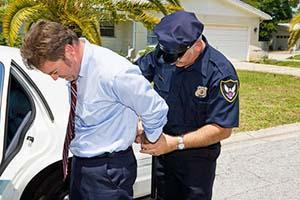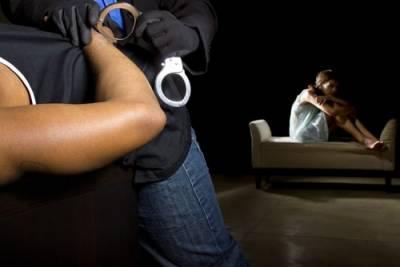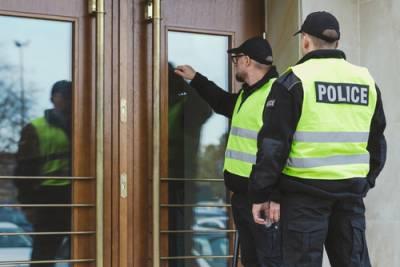Recent Blog Posts
Understanding the Severity of a First-Offense DWI in San Antonio
 Driving while intoxicated, also known as a DWI, is a criminal offense that is relatively common in most areas of Texas and the greater United States. Few experiences can be more nerve-wracking than having a couple of drinks with your buddies after work, only to be pulled over by a police officer on your way home. If a police officer pulls you over for a suspected DWI, you may be asked to perform a few tests that will be used to determine whether you are impaired by alcohol or another substance. While it is true that these kinds of tests do not have 100 percent accuracy, they are usually accurate in the vast majority of cases. So, if you have been arrested and charged for a first-time DWI in Texas, it is essential to be aware of the penalties you may face if you are convicted.
Driving while intoxicated, also known as a DWI, is a criminal offense that is relatively common in most areas of Texas and the greater United States. Few experiences can be more nerve-wracking than having a couple of drinks with your buddies after work, only to be pulled over by a police officer on your way home. If a police officer pulls you over for a suspected DWI, you may be asked to perform a few tests that will be used to determine whether you are impaired by alcohol or another substance. While it is true that these kinds of tests do not have 100 percent accuracy, they are usually accurate in the vast majority of cases. So, if you have been arrested and charged for a first-time DWI in Texas, it is essential to be aware of the penalties you may face if you are convicted.
It can be easy to feel like all hope is lost if you have been charged with DWI. However, it is important to understand that qualified legal representation can assist you in fighting the charges and working towards a reduced sentence or dropping the charges altogether. If you have been charged with DWI, contact an experienced DWI defense attorney who will work to ensure your rights are protected while also pursuing a favorable case outcome in your favor.
Is It Illegal to Have an Open Container of Alcohol in a Vehicle in San Antonio?
 We can all imagine the scenario: you are driving down the road with a couple of buddies, and suddenly, you hear the distinct cracking of a can opening. You turn to your right, and what do you know, but your friend has cracked open a can of beer. At this moment, you are likely wondering, are you in any legal jeopardy for a passenger drinking from an open container, even if you have not been drinking? Well, it is essential to know that in Texas, a driver may be charged with a Class C misdemeanor because of the open container in your car, regardless of whether you have had a single sip from it.
We can all imagine the scenario: you are driving down the road with a couple of buddies, and suddenly, you hear the distinct cracking of a can opening. You turn to your right, and what do you know, but your friend has cracked open a can of beer. At this moment, you are likely wondering, are you in any legal jeopardy for a passenger drinking from an open container, even if you have not been drinking? Well, it is essential to know that in Texas, a driver may be charged with a Class C misdemeanor because of the open container in your car, regardless of whether you have had a single sip from it.
If you have been charged with a Class C misdemeanor for driving with an open container present in your car, consider contacting an experienced criminal defense attorney, who will be prepared to ensure your rights remain protected and that an outcome in your favor can be pursued in your case.
What to Know About Open Container Laws in Texas
I Was Stopped for a Blown Taillight but Wound Up in Jail. How Can This Be?
 There is nothing that can ruin your day quite like being pulled over for a traffic stop and then being taken into police custody. That may sound like a far-off scenario that rarely, if ever, happens, but you would be surprised. There are many ways a routine traffic stop can lead to you spending the night or longer behind bars. Remember that the reason you get arrested may have nothing to do with the reason you were initially pulled over in the first place.
There is nothing that can ruin your day quite like being pulled over for a traffic stop and then being taken into police custody. That may sound like a far-off scenario that rarely, if ever, happens, but you would be surprised. There are many ways a routine traffic stop can lead to you spending the night or longer behind bars. Remember that the reason you get arrested may have nothing to do with the reason you were initially pulled over in the first place.
This blog will look at common reasons why traffic stops may escalate into an arrest. If something like this has happened to you, consider contacting a skilled criminal defense attorney who will fight to protect your rights and freedom.
In What Situations Can a Traffic Stop Turn into An Arrest?
When an officer pulls someone over for a routine traffic stop, it is essential to avoid verbalizing anything that a police officer may find offensive, unusual, or incriminating. Police officers are often on alert to find a reason to suspect you of wrongdoing.
When Does a Sexual Assault Become Aggravated Sexual Assault in Texas?
 In Texas, sex crimes are taken exceptionally seriously and, as a result, are aggressively prosecuted to the fullest extent of the law. This is especially true for crimes such as aggravated sexual assault. Therefore, if you have been charged with aggravated sexual assault, you are in serious legal jeopardy. If you have found yourself in this unfortunate situation, contacting an experienced defense attorney is imperative if you want to keep your freedom and have a chance of avoiding prison. In this blog, we will delve deeper into what aggravated sexual assault is, what the penalties are, and what course of action you should consider taking to avoid being convicted.
In Texas, sex crimes are taken exceptionally seriously and, as a result, are aggressively prosecuted to the fullest extent of the law. This is especially true for crimes such as aggravated sexual assault. Therefore, if you have been charged with aggravated sexual assault, you are in serious legal jeopardy. If you have found yourself in this unfortunate situation, contacting an experienced defense attorney is imperative if you want to keep your freedom and have a chance of avoiding prison. In this blog, we will delve deeper into what aggravated sexual assault is, what the penalties are, and what course of action you should consider taking to avoid being convicted.
What is Aggravated Sexual Assault?
Under Texas law, aggravated sexual assault occurs when a person intentionally causes or threatens to cause harm to someone through means of a sexual attack. This sexual attack must include an aggravating factor. Several aggravating factors can escalate a charge of sexual assault to aggravated sexual assault.
Understanding Compassionate Release from Federal Prison in Texas
 In recent years, more and more people have become aware and taken issue with the high number of inmates currently serving time in the United States prison system. Of all 50 states, Texas has the highest number of inmates at 135,906. Advocates for civil liberties in the United States have taken significant exception to the fact that the U.S. has such a high number of incarcerated individuals. Many federal prisoners work hard while in prison to pay their debts back to society to obtain an early release or a sentence reduction from prison. The avenue of “compassionate release” may be available to particular federal prisoners.
In recent years, more and more people have become aware and taken issue with the high number of inmates currently serving time in the United States prison system. Of all 50 states, Texas has the highest number of inmates at 135,906. Advocates for civil liberties in the United States have taken significant exception to the fact that the U.S. has such a high number of incarcerated individuals. Many federal prisoners work hard while in prison to pay their debts back to society to obtain an early release or a sentence reduction from prison. The avenue of “compassionate release” may be available to particular federal prisoners.
However, a compassionate release is not available to all federal inmates. Therefore, this blog will delve into the requirements for a prisoner to secure a compassionate release. Moreover, suppose you are interested in seeking a compassionate release. In that case, you must first consult with an experienced attorney who knows what the process entails and can ensure everything is done to give you a chance to obtain such a release.
Understanding the Law Regarding Human Smuggling in Texas
 Unlawful immigration is frequently discussed and hotly debated in the political discourse of politics in America. However, for the people living in the central and southern areas of Texas, illegal immigration is a genuine, everyday issue, considering the region's closeness to the border of the United States and Mexico. State officials in Texas and federal officials are frequently looking for anyone who entered the United States illegally. Every once in a while, a person living in the central or southern part of Texas may be accused of helping the unlawful entry of one or group of individuals into the U.S. and can face charges of human smuggling.
Unlawful immigration is frequently discussed and hotly debated in the political discourse of politics in America. However, for the people living in the central and southern areas of Texas, illegal immigration is a genuine, everyday issue, considering the region's closeness to the border of the United States and Mexico. State officials in Texas and federal officials are frequently looking for anyone who entered the United States illegally. Every once in a while, a person living in the central or southern part of Texas may be accused of helping the unlawful entry of one or group of individuals into the U.S. and can face charges of human smuggling.
Smuggling someone into the United States is a grave crime that can bring with it hefty fines and jail time. If you have been accused of and charged with human smuggling, consider consulting with an experienced attorney with knowledge of and experience in human smuggling cases. Hiring an attorney can help ensure your rights are protected and that your best interests are always put first.
What Constitutes Boating While Intoxicated in Texas?
 There are few things more enjoyable than a lovely day out on the water. With all the magnificent lakes and waterways in Texas, boating is an excellent activity you can enjoy with friends, family, or even yourself. So, what happens when you want to crack a cold one out on the water? Unlike driving a car, it is not illegal to have an open container of alcohol while you are driving a boat or watercraft if the operator is at least 21 years of age and does not become legally intoxicated.
There are few things more enjoyable than a lovely day out on the water. With all the magnificent lakes and waterways in Texas, boating is an excellent activity you can enjoy with friends, family, or even yourself. So, what happens when you want to crack a cold one out on the water? Unlike driving a car, it is not illegal to have an open container of alcohol while you are driving a boat or watercraft if the operator is at least 21 years of age and does not become legally intoxicated.
If you have been charged with boating while intoxicated, you may be shocked, as it is not uncommon for legal-aged boaters to enjoy alcohol while on the water. However, if you have been charged with such a crime, it may be wise to hire experienced legal counsel to help you avoid criminal penalties, including fines and prison.
Being Charged with Boating While Intoxicated in Texas
Under Texas state law, a person commits the offense of boating while intoxicated if they operate a watercraft with a BAC at or above .08%. To be convicted of boating while intoxicated, you must be found guilty of at least one of these criteria:
DWI Information for Texans This Halloween
 It is well-known that DWI arrests tend to increase around any major holiday. When people are in a festive mood and out celebrating, they tend to drink more. Halloween is one of the more casual holidays, and for many, one of the most fun. Most adults only have a reason to dress up in a costume once each year and strive to make the most of their Halloween festivities. Unfortunately, nothing brings an abrupt end to a celebration like a DWI arrest. While you would be far from alone, the consequences of a DWI can be harsh. Texas is not known for light sentencing. Even as a first and only offense, a DWI can leave a mark on your record that closes doors.
It is well-known that DWI arrests tend to increase around any major holiday. When people are in a festive mood and out celebrating, they tend to drink more. Halloween is one of the more casual holidays, and for many, one of the most fun. Most adults only have a reason to dress up in a costume once each year and strive to make the most of their Halloween festivities. Unfortunately, nothing brings an abrupt end to a celebration like a DWI arrest. While you would be far from alone, the consequences of a DWI can be harsh. Texas is not known for light sentencing. Even as a first and only offense, a DWI can leave a mark on your record that closes doors.
If you are one of the hundreds who will be arrested for drunk driving this Halloween, it is important to take the matter very seriously and make finding a good criminal defense attorney a top priority. A DWI conviction could follow you for a lifetime like a haunting you cannot get rid of.
What You Need to Know if You Are Under 21 and Facing DWI Charges
 Texas courts can be quite strict when enforcing laws against drunk driving. It is well-known that it is dangerous to operate a motor vehicle after consuming enough alcohol to become intoxicated. For most adults in Texas, it is illegal to operate a vehicle with a B.A.C. of over 0.08%. This is generally considered to be the blood alcohol level at which an adult is deemed legally intoxicated. However, the law in Texas is much more strict with persons who are under the age of 21 who drive after drinking. It is already unlawful for a person less than 21 years of age to consume alcoholic beverages in general. Concerns over the effects of alcohol on minors have led to even stricter legislation regarding underage drinkers who drive. If you are a minor facing DWI charges, it would be wise to seek out a skilled criminal defense attorney.
Texas courts can be quite strict when enforcing laws against drunk driving. It is well-known that it is dangerous to operate a motor vehicle after consuming enough alcohol to become intoxicated. For most adults in Texas, it is illegal to operate a vehicle with a B.A.C. of over 0.08%. This is generally considered to be the blood alcohol level at which an adult is deemed legally intoxicated. However, the law in Texas is much more strict with persons who are under the age of 21 who drive after drinking. It is already unlawful for a person less than 21 years of age to consume alcoholic beverages in general. Concerns over the effects of alcohol on minors have led to even stricter legislation regarding underage drinkers who drive. If you are a minor facing DWI charges, it would be wise to seek out a skilled criminal defense attorney.
What Does Texas Law Say About Underage DWI Charges?
The Texas statute pertaining to underage drinking and driving is incredibly strict. Here, a person under 21 years old can be charged with and convicted of driving while intoxicated if they have any detectable amount of alcohol in their body. Impairment does not need to be proven. Even a very small amount of alcohol insufficient to intoxicate you can trigger these charges. Less than one alcoholic beverage can be detected through chemical testing.
If I Have Not Been Arrested Yet but Am a Suspect, Do I Need a Lawyer?
 The moment you become aware that you are under suspicion of a crime of any type, it is prudent to contact an attorney. Discovering that there is a possibility that you will be arrested and charged in the future affords you a unique opportunity to prepare in advance for any contact with the police and investigators. In fact, it is preferable to learn that you are a suspect prior to arrest. An attorney can aid you in preparing for a potential future arrest. Those who have no notice that they are under suspicion before the moment they are placed in handcuffs are at a considerable disadvantage - they are more prone to making costly mistakes during questioning before requesting an attorney. Particularly if the criminal offense you are suspected of is a felony, having an attorney’s assistance from the outset of an investigation against you can be enormously beneficial. If you believe that the police are investigating you for potential criminal activity or that you have become a suspect, contacting a lawyer promptly can make a vast difference in your case.
The moment you become aware that you are under suspicion of a crime of any type, it is prudent to contact an attorney. Discovering that there is a possibility that you will be arrested and charged in the future affords you a unique opportunity to prepare in advance for any contact with the police and investigators. In fact, it is preferable to learn that you are a suspect prior to arrest. An attorney can aid you in preparing for a potential future arrest. Those who have no notice that they are under suspicion before the moment they are placed in handcuffs are at a considerable disadvantage - they are more prone to making costly mistakes during questioning before requesting an attorney. Particularly if the criminal offense you are suspected of is a felony, having an attorney’s assistance from the outset of an investigation against you can be enormously beneficial. If you believe that the police are investigating you for potential criminal activity or that you have become a suspect, contacting a lawyer promptly can make a vast difference in your case.





